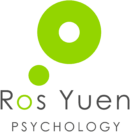Relationships and marriages always involve a lot of effort, commitment and vulnerability over time. It’s common to experience challenges, many of which can be resolved without professional assistance. However, when problems reoccur and seem unsolvable, it is advisable to seek help.
At Ros Yuen Psychology, I work with couples to resolve a wide range of issues that may be affecting the level of stability, commitment and overall satisfaction in the relationship. Below are some of the most common issues couples raise, and how counselling can help.
For personalised advice, contact our team at Ros Yuen Psychology today.
1. Communication Issues
Positive communication is part of the bedrock of a strong relationship. We often think of communication as the words we use, but it also includes tone of voice and non-verbal gestures, from eye contact and nodding to how much we look at our phone when we’re together.
When couples lose the ability to communicate well, one or both partners are often left feeling insecure and unappreciated. Relationships counselling may give them the opportunity to express their needs, resolve misunderstandings, and navigate differences in communication styles.
2. Intimacy Issues
Many couples struggle with a lack of intimacy in their relationship – emotional, physical or sexual. They may have different sexual desires or needs, or find it difficult to prioritise sex and affection when life gets busy. Sometimes one or both partners lose attraction for the other person.
In relationships counselling, couples are often encouraged to devote more time to building affectionate rituals. These may span from intimate sexual moments to simple daily habits, like saying hello, goodbye and “I love you”.
3. Emotional Disconnect or Distance
A lack of intimacy in relationships sometimes manifests as an emotional disconnect. The seed for this is often planted in childhood; as children, we are not always taught how to understand and communicate our needs and emotions. Many people learn to bottle it all up and avoid talking.
This can be a very lonely and disheartening experience for many people. Relationship counselling can help couples reestablish intimacy and communicate in a more authentic and meaningful way.
4. Commitment Issues
Also often stemming from negative childhood experiences, commitment issues are a common theme in counselling. They tend to reflect a fear of the changes or expectations required by long-term commitments.
A therapist can help determine the underlying reasons for this fear, including any unrealistic expectations or assumptions associated with commitment. Ideally, both partners can build trust in the relationship while maintaining a sense of freedom and independence.
5. Building Trust After Cheating
Infidelity and cheating also impacts – and frequently severs – trust in relationships. The person being cheated on experiences an intense betrayal, while their partner feels guilt and even resentment.
Relationship counselling offers an opportunity to evaluate this overall breakdown of trust and good will. The therapist will establish a supportive environment in which both partners can fully express their emotions, work out the core issues, and attempt to rebuild their bond.
6. Jealousy and Insecurity
Another issue that creates huge division in relationships is jealousy. The jealous partner is often projecting a deeper insecurity about themselves or the relationship onto their partner. This affects the quality of their bond, and in more extreme cases can lead to controlling or violent behaviours.
For some, couples counselling is a great opportunity to investigate chronic jealousy and rebuild trust together. But if the jealousy is persistent, or more deeply embedded, one-on–one counselling might be more productive.
7. Anger and Resentment
Many couples that undertake therapy also grapple with deeply embedded feelings of anger or resentment. Sometimes one partner is frustrated by their partner’s actions, even from years or decades ago. Perhaps one or both individuals have unmet emotional needs.
It’s common for anger and resentment to drive arguments and tension. Therapists can work with couples to identify any underlying issues, from everyday life stressors to deeper fears of alienation or abandonment. They may also suggest strategies for minimising conflict.
8. Incompatible Values, Goals or Plans
Which couple hasn’t at some point faced a high-stress situation or choice? Sometimes it’s hard to agree on big life decisions, like where to live, which career opportunities to pursue, or whether or not to get married and have children. Sometimes big life changes and stages just cause a lot of tension.
Relationship counselling may help couples express their desires, doubts and concerns, both for their present and future circumstances. It can also foster a more positive and transparent approach to decision-making.
9. Parenting or Financial Conflicts
While many areas of contemporary life can put strain on couples, two are particularly common: parenting and money. They tend to evoke big emotions, and sometimes the arguments to match.
When couples have different parenting styles, or are struggling to manage money stress, relationship counselling may help them identify common values and develop a range of short and long-term goals.
10. Unsolvable Problems
According to the psychologist and professor John M. Gottman, problems can be solvable and unsolvable – and it really helps to know the difference.
Relationships counselling can help couples understand the bigger picture of their relationship, work through problems that are solvable, and learn strategies for reducing conflict in areas they struggle with.
Book in for Couples Counselling in Adelaide
At Ros Yuen Psychology, I am trained to help couples communicate their needs more effectively, problem-solve together, understand and appreciate each other’s shared values, and make room for their differences.
Many of the challenges that threaten the survival of relationships can be sorted with the right help, especially if addressed early enough.
I also recognise every couple is different, and there are no one-size-fits-all solutions to the challenges they may face. If you feel counselling might suit you and your unique circumstances, I would love to hear from you.




